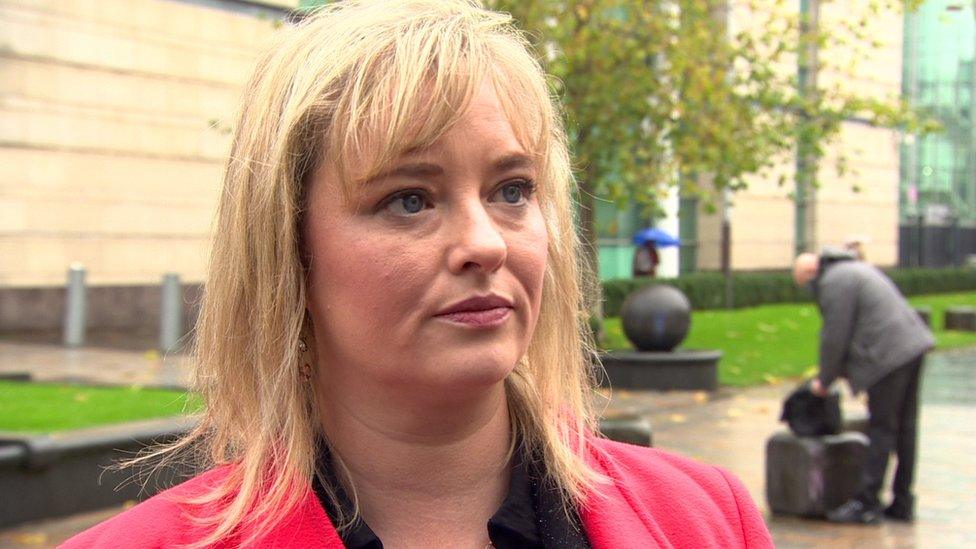MĂ¡irĂa Cahill: Former SDLP councillor welcomes law change
- Published

MĂ¡irĂa Cahill speaking outside court in Belfast
A former SDLP councillor has welcomed a commitment to change the law in NI requiring election candidates to make their address public.
MĂ¡irĂa Cahill said she could not defend her seat in May's council election as her address was to be published in nomination papers.
Ms Cahill withdrew from the election as she was unwilling to make her address public due to a restraining order protecting her from an individual.
She brought a case to the High Court.
Backed by the Human Rights Commission, Ms Cahill sought a change to the law arguing it currently breaches the human rights of people who are victims of domestic violence and abuse, or those with concerns for their safety.
On Monday, the court heard that a bill aimed at bringing the law in Northern Ireland into line with the rest of the UK was due to be brought before MPs in late November, but had fallen when Parliament was dissolved before the general election.
A lawyer for the secretary of state said there was no opposition to the law being changed and he urged an adjournment until the New Year to allow for "a clearer picture of the possible legislative timetable".
Positive move
The case was adjourned until February 3.
Outside the court, Ms Cahill called it "a result of sorts".
"I think it's a positive move in one sense that there is a commitment that this law should change," she said.
"It follows also that there should be recognition that detriment has been done to myself as a result because this case would not have been taken had I not been in that position.
"What I think needs to happen is there needs to be recognition of that.
"I don't understand how this government or administration can give a commitment that this will change within the next Parliament given that bills or proposed bills fall once Parliament falls.
"So, I think the next step is to really wait until the next administration is up and running and for them to reaffirm the commitment and also to recognise that harm has been done to anybody who's been affected by this discriminatory law in the past."
Ms Cahill criticised the last government saying it had six months to bring about change and it had not happened.
"We'll wait and see what the next court hearing brings, but you know it is a result of sorts in the sense that there has been a commitment given and cross-party support to change," she added.